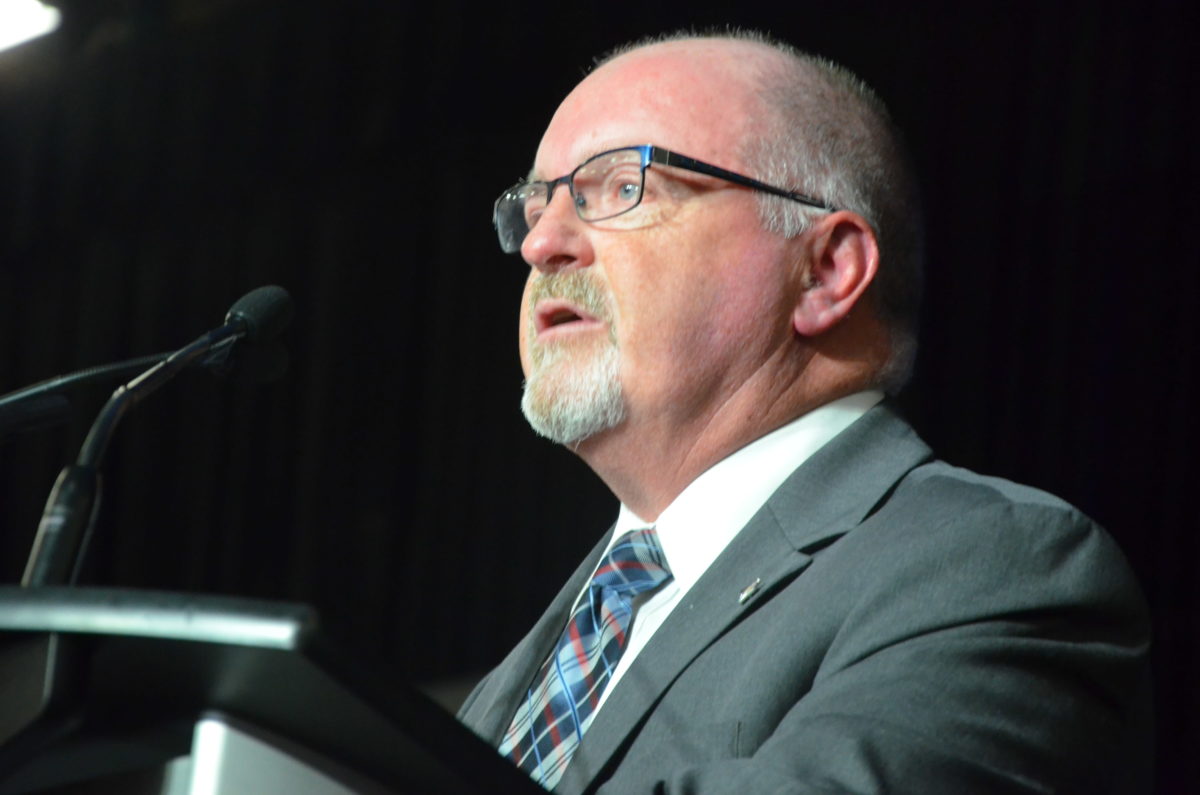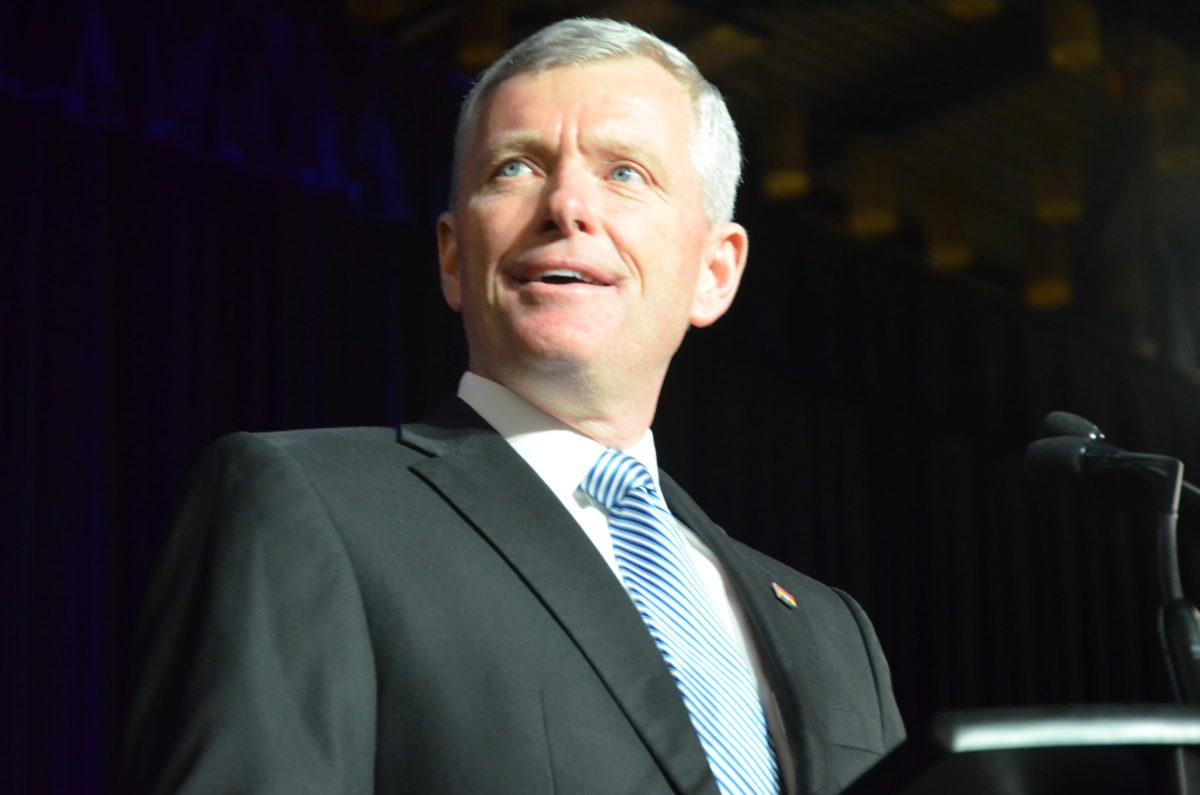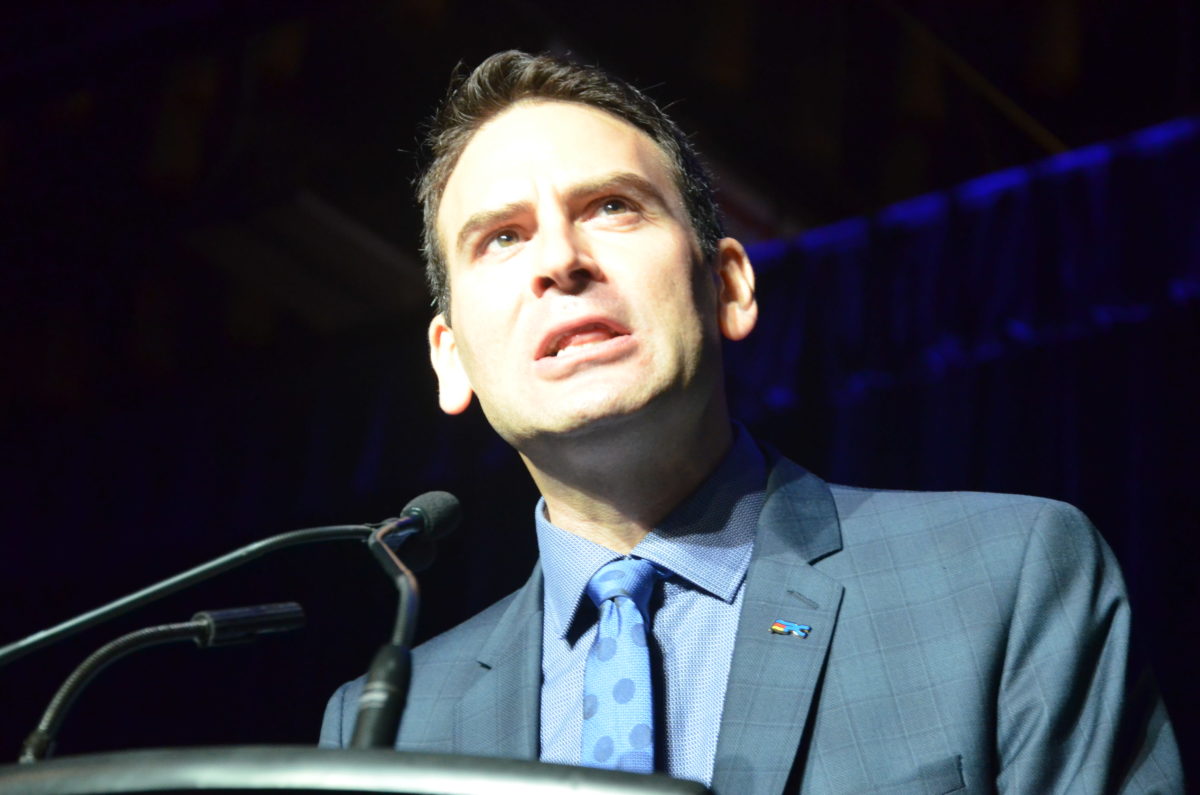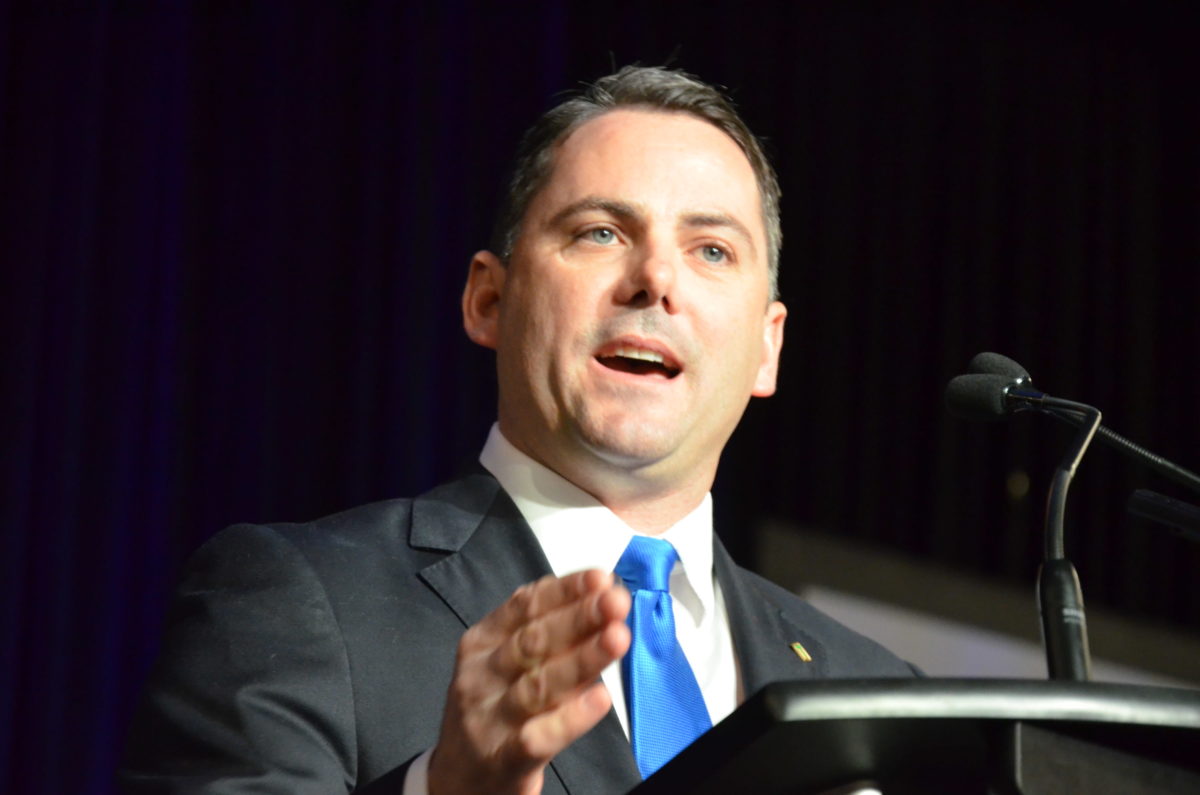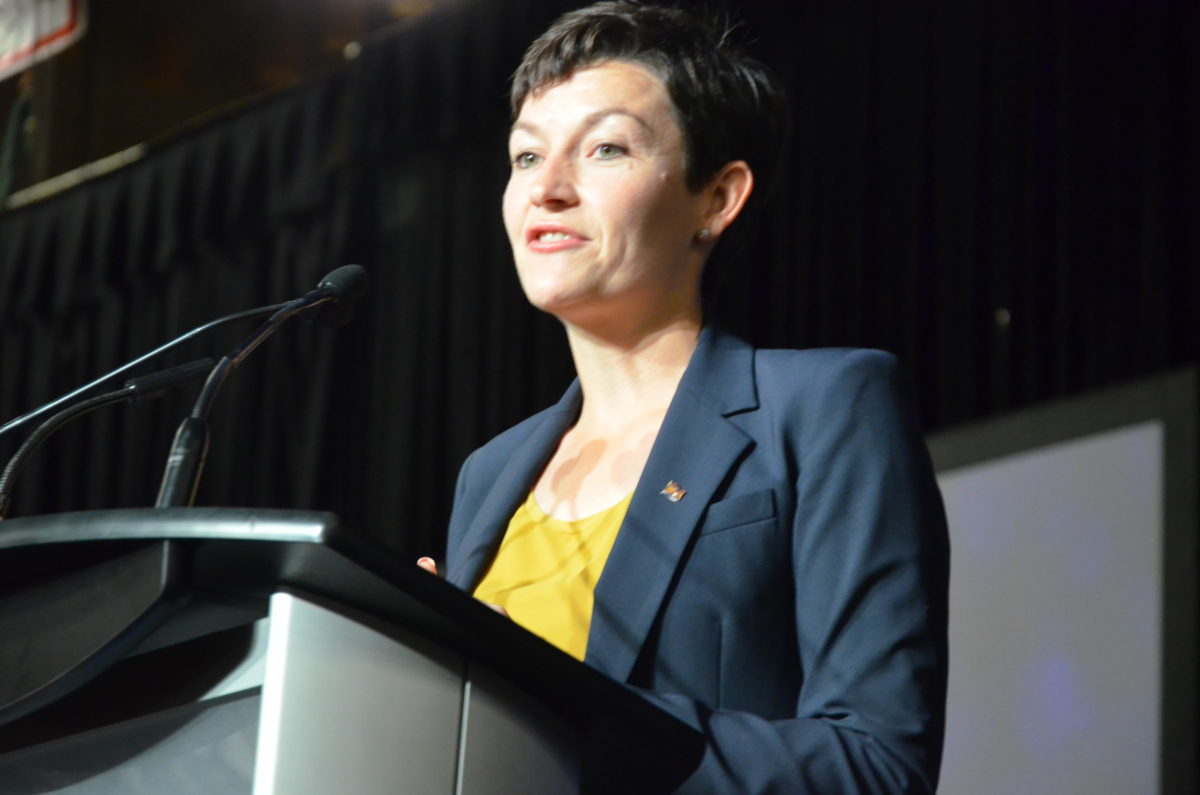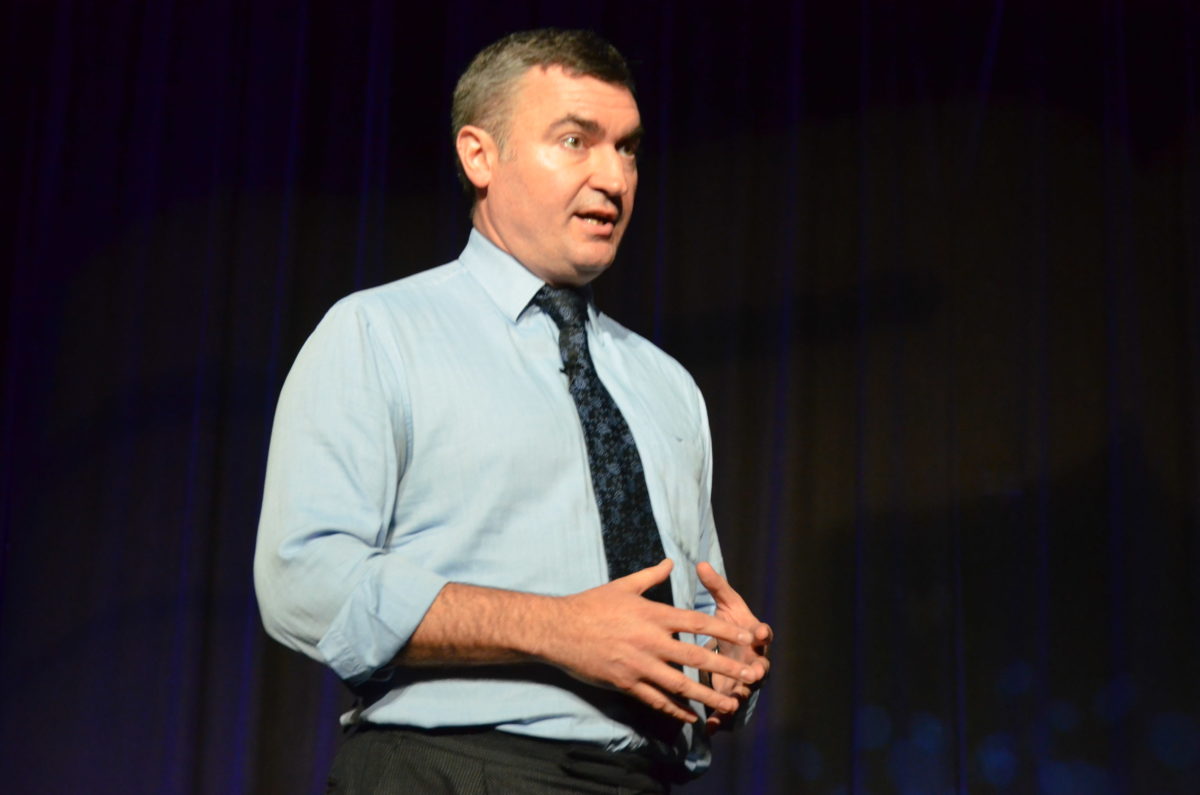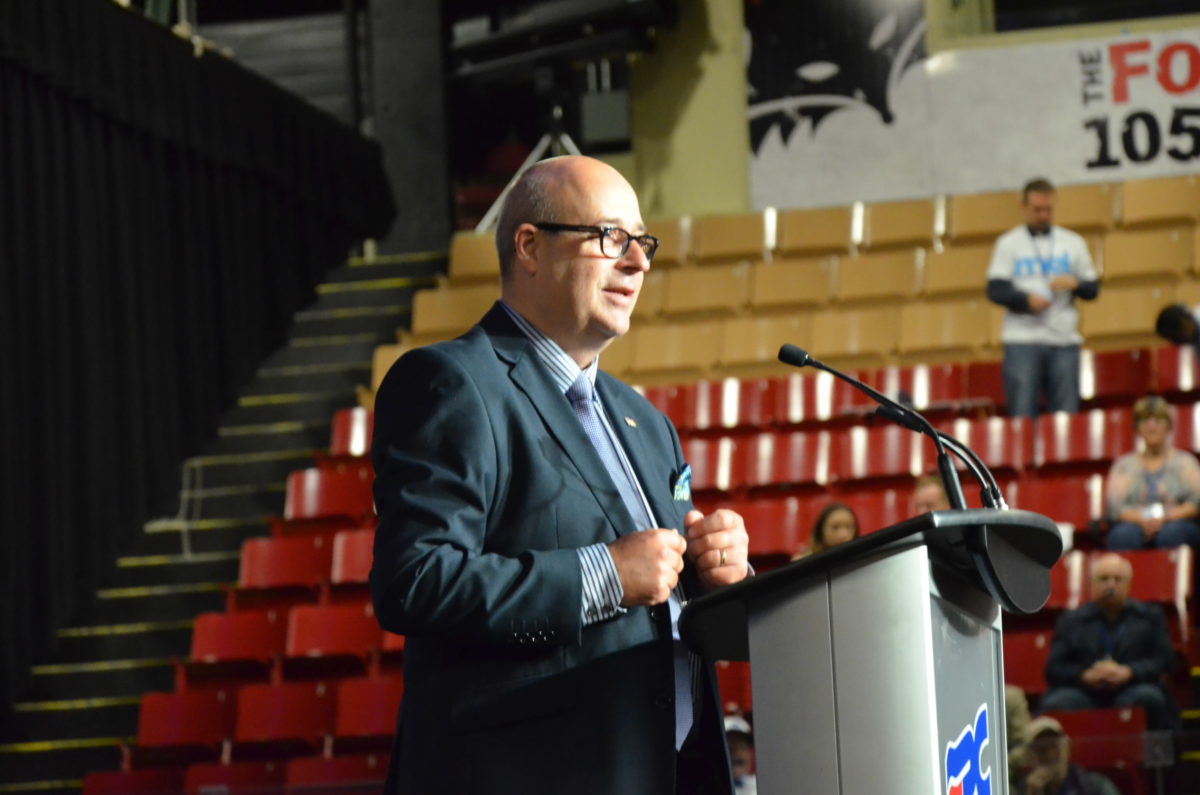

Blaine Higgs can now plan on leading the Progressive Conservative Party of New Brunswick into the 2018 provincial election.
The former Irving Oil employee who was Finance minister in the last Tory government beat ex-Saint John mayor Mel Norton on the third and final ballot at Saturday’s leadership convention at the Aitken Centre in Fredericton.
“We need to put the province first and politics second,” said Higgs. “We’re going to do politics differently.”

An MLA for Quispamsis, Higgs received 1,564 votes on the third ballot, good for 57 per cent of the 2,732 ballots cast.
Norton earned 1,168 votes, or 43 per cent support from party delegates.
Higgs and Norton were only two of the seven candidates seeking the leadership, however.
Other contestants were Moncton lawyer Monica Barley, former federal MP Mike Allen, Fredericton West-Hanwell MLA Brian Macdonald, Miramichi-Bay du Vin MLA Jake Stewart and Dieppe businessman Jean Dubé.
Higgs led the way after the opening round of voting with 1,228 votes, or 22 per cent. Sitting 150 votes behind him was Norton, who garnered 1,078 votes (19 per cent).
Barley and Allen also advanced to the next round with 948 votes (17 per cent) and 892 votes (16 per cent) respectively.
In order to advance to the second ballot, candidates had to garner the support of at least 15 per cent of delegates, but a maximum of four got a second chance to ask the party faithful to back them.
Stewart earned 700 votes (12 per cent), but dropped off after the preliminary ballots were cast. Macdonald was 95 votes behind him with 605, or 11 per cent.
After falling just short of a spot on second ballot, Stewart and Macdonald threw their support behind Barley.
“In order to be successful in the next election, we need to reach out to all corners of the province,” Macdonald said following the convention.
“[As a party], we’re going to help [Higgs] reach out to all New Brunswickers.”
Dubé, a former MLA, only received 39 votes after the first ballot. He endorsed Higgs after the defeat.
After delegates voted for the second time on Saturday, Higgs paced his opponents with 1,417 votes (34 per cent), but Norton stayed within shouting distance after being supported by 993 party delegates.
Barley placed third with 861 votes (21 per cent), while Allen garnered 829 votes (20 per cent).
They both fell victim to the limit of two candidates on the final ballot.
“Our team did a great job,” Allen said after the convention wrapped up. “We came out from the beginning with some things we wanted to stand for, and we did all that and didn’t compromise ourselves.”
Allen supported Higgs for the leadership after his loss, and Barley joined the Norton camp after her defeat.
Higgs takes the reins as official Opposition leader at a time when New Brunswick faces major fiscal, economic and demographic challenges.
The province has an aging population and a death rate that has eclipsed the number of people born, along with an unemployment rate that has stayed at around 10 per cent in recent years.
As well, New Brunswick’s net debt is on track to surpass $13.4 billion in March 2017, and the province is running a deficit that’s between $262 million and $342 million.
Higgs said the solution to those issues is to capitalize on all opportunities to solve the province’s woes.
“Is this province moving forward? Or is it moving backwards?” he said.
“How will we get on a trail that’s going to fix it?”
Photos in gallery by Nathan DeLong/The Aquinian


